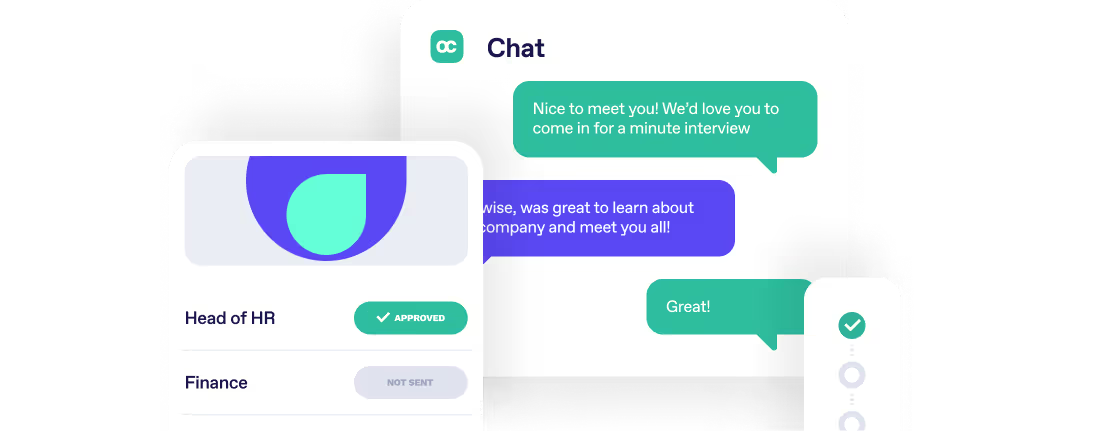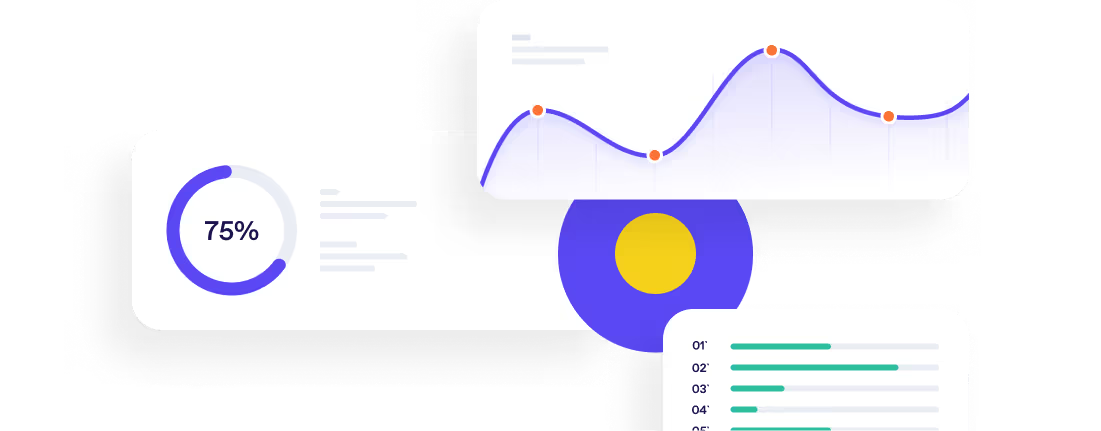How to Use Exit Interviews for Talent Attraction & Retention



According to a survey by Burke Incorporated, 91% of Fortune 500 companies conduct employee exit interviews, and 87% of mid-sized companies do the same. This is because exit interviews are a chance for employees to give completely honest feedback about their position and your company culture--feedback that you can use to ensure that your next hire is more prepared, engaged and satisfied with their job at your organisation. In fact, 60% of HR professionals take action after an exit interview by updating job descriptions, addressing comments about management and reviewing employee salaries, according to a study conducted by OfficeTeam.
Losing an employee is a costly and discouraging experience, but there are ways to reduce your turnover and improve your retention rate. Exit interviews have long been on the list of top HR trends because of their potential to help you in the recruitment process and beyond with employee retention, employee engagement and employer branding. That’s why we’ve narrowed down exactly “How to Use Exit Interviews to Attract and Retain Top Talent.”

Identify trends for leaving
The main benefit of conducting an exit interview is to find out why an employee has decided to leave your company, if they are indeed leaving voluntarily. This will help you understand exactly where to improve in order to keep your current and future employees happy and reduce turnover.
According to a study by PwC, the top three reasons that employees choose to leave a company are limited career or promotional opportunities, a lack of respect or support from a supervisor and unsatisfactory compensation. In order to identify the top reasons why your employees are leaving, keep track of the responses of your exit interviews over a period of time. You can analyse this data to determine patterns in your employees’ experiences; this will show you where to improve. For example, if your employees are consistently leaving because of an enhanced opportunity in another role like 54% of those in the HCPC 2015 Exit Interview report, you should consider implementing more opportunities for employee development and internal promotions.
During the interview, ask the employee about their perception of everything from their onboarding process, to their working conditions, to your company culture. You can also identify exit trends by examining their responses in the context of their position, department, pay history and supervisor. This will give you an idea about the bigger picture of your company, and whether or not there are any overarching themes that are causing certain employees to leave more frequently than others.
This is also your chance to learn more about your competition. Ask about the company they have taken a new job with and what attracted them to this new position. Not only will this information help you improve what you offer your current employees, but it will also help you attract talent by altering what you emphasise in job descriptions and interviews. Knowing what employees in your industry are looking for in a position and company will help you design your talent acquisition initiatives in ways that stand out against your competition.
Gain insight about managers
Unfortunately, many employees choose to leave a company because of issues with management. In fact, half of all employees have reported leaving a job in order to get away from their manager at some point in their career, according to research by Gallup.
Exit interviews are the perfect opportunity to gather insight about your management team, because the employee no longer has to worry about the consequences of filing a complaint. When conducting an exit interview, ensure that the employee’s direct manager is not present in order to allow the employee to be as honest as possible. Ask them about all aspects of their experience with management, such as their direct management team and leadership styles. Managers should be improving employee motivation, engagement and productivity, not leading them to look for a new job.
If a pattern of negative responses emerges about a certain manager or managing technique, it might be time to review your team and consider new training. When the Harvard Business Review conducted a study about exit interviews, one executive at a major restaurant chain reported hearing multiple complaints about micromanagement during the interviews she had conducted. As a response, she established more intensive training and development initiatives for her managers, which resulted in more positive perceptions about the management team.
INSERT-CTA
Strengthen your company culture
While you should be conducting frequent employee surveys to maintain and enhance your company culture, exit interviews are a great way to receive honest feedback about what your company is doing right, and what it is doing wrong.
During the interview, ask the employee about the basics of your company culture such as your benefits and well-being strategy, as well as their overall experience. According to research by Glassdoor, 84% of employees with high benefit satisfaction report high job satisfaction. Your departing employee will be able to provide significant feedback about what perks they valued, and what perks had been missing during their time at your company. This is also where they can tell you what type of culture might have made them stay longer, and what attracted them to the culture of their new company.
By analysing this constructive feedback about your company culture and implementing initiatives to improve where you might be lacking, you can retain current employees who may have had similar feelings about your workplace as the departing employee. You will also have better insight about what candidates are looking for in a culture in your industry, so you will be able to market open positions more effectively.
You should also consider aligning your interview questions with your organisation’s values and missions to see how well you’ve followed through. Find out if the company culture was what the employee expected when they took the job, and gather information about their perceptions of your branding employer branding efforts. Are you really creating a collaborative space for creative teamwork, or promoting work life balance, or prioritising holistic well-being? The responses you receive will help you better communicate with future candidates and maintain an employer brand and company culture that you and your employees will be proud of.
Establish positive future advocates
One of the hidden benefits of conducting exit interviews is the positive and respectful note that your employees will leave on. Rather than ending a valuable professional relationship on bad terms, a final conversation will show an employee that you care about their experience with your company enough to sort out any issues.
By parting on a positive note, you can establish lifelong advocates for your organisation. Your employee will likely put your company name on their social media or LinkedIn profiles, so they will have the power in the future to recommend or discourage candidates to join your team. This is essential because candidates trust employees three times more than the employer to provide accurate information about working at your company, according to a LinkedIn Employer Brand Statistics report.

Even if an amicable parting results in something as simple as a positive Glassdoor review, it will improve your employer brand and reputation in the eyes of passive and active candidates. This will help you attract talent for years to come.
INSERT-LINE
Another way to help attract and retain top talent is with the help of a recruitment software. This is where Occupop comes in. Our easy-to-use platform will help you post accurate job descriptions across multiple channels, and our AI technology will help you source CVs and schedule interviews. With Occupop, you can save 4-5 hours a week and up to 75% of recruitment costs, so you can spend more time focusing on future and current employees--and decreasing your turnover rates.
Check out www.occupop.com to get started for free today, and subscribe below to have all of our recruitment tips and tricks sent straight to your inbox!
Summary Points
By conducting exit interviews are power assets that you an in-depth insight into your company and your culture through a departing employees eye, this information can be vital when used correctly. How to use exit interviews to attract and retain employees:
- Identify trends for leaving
- Gain insights about managers
- Strengthen your company culture
- Establish positive future advocates
Simple. Beautiful.
Recruitment Software.
HR updates sent straight to your inbox
You might also like...


Manage your entire hiring process simply, from engagement to management, hiring and onboarding







Simple. Beautiful.
Recruitment Software.
Recruitment Software.






